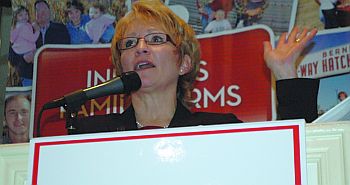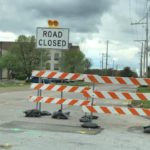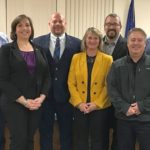 03/22/12 Indiana’s Lt. Governor was in Plymouth to talk about the future of the state and it has a lot to do with rural communities.
03/22/12 Indiana’s Lt. Governor was in Plymouth to talk about the future of the state and it has a lot to do with rural communities.
Lt. Governor Sue Ellspermann was in Plymouth to address a district meeting for the Indiana Farm Bureau, hosted by the Marshall County branch of the organization. Local leaders from around northern Indiana were present to hear Ellspermann outline the state’s plans to revitalize Indiana and it’s economy. Much of that plan involves revitalizing and embracing the state’s agricultural history.
Ellspermann told the group that her father – who ran a small business in her home town – used to tell her, “If the farmers don’t have a good year, we won’t have a good year.”
“We have to make rural cool,” she said.
She began outlining the problems facing many of the state’s communities – the drain of young talent to larger urban areas, the corresponding effect of “greybeard” leadership in communities lacking new younger leaders to take up the standard, and a decline in main streets and small business around the state that has led to problems with methamphetamine and even gangs in some communities.
The state plan espoused by she and Governor Pence is one of revitalizing those areas in Indiana’s small communities starting with the Food and Agriculture Information Corridor, a chance to use Indiana’s resources such as Purdue University, to lead in areas such as genetics and precision farming to help drive agriculture into the future.
She pointed at partnerships with state government to help small businesses grow in communities around the state. According to Ellspermann it is about having a community and regional vision and planning to meet that vision. The corresponding growth would create job opportunities to keep young professional talent from seeking those opportunities elsewhere.
Infrastructure is a part of that plan as well. Ellspermann advocated wideband internet for all communities throughout the state as a priority.
She said that Indiana hit its high mark in jobs in the year 2000 with 2.5 million employed Hoosiers. She said the current administration’s goal is to surpass that mark.
“The agricultural industry will be the backbone of that plan,” she said.














